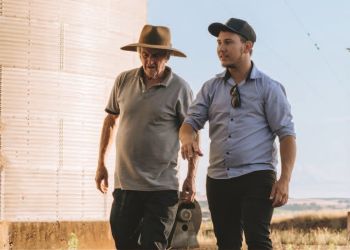NACCHO Voice spoke with Doug Mormann, who retired in March as director of the La Crosse County (WI) Health Department, about his three-decade career in public health, his department’s path to pursuing accreditation, and the challenges that keep him awake at night.
NACCHO: Please tell us about your career path.
DM: I received a Master’s of Science in Environmental Health from the University of Minnesota in 1972 but had pretty much decided by the time I got the degree in my hot hand that the training I had received was too lab-based and that I would like to do something more focused on people. My wife and I spent a year with Vista, which now is called Americore, doing public health work with a community action agency in Western New York State. That was followed by work with the University of Wisconsin-Madison on a community environmental health research proposal that was not successful, followed by work with the Wisconsin Department of Health to put together its first state health plan. This in turn enabled me to serve for seven years as a public health planner at a health systems agency in northern Wisconsin.
You can see I had trouble holding a job! Joking aside, these experiences eventually enabled me to find rural local public health as a career and passion. Shortly after being hired as the health director in a small department, I was given the opportunity to participate in a national public health leadership program that enabled me to learn skills that I could use in the health department, in the local community, and with state and national public health organizations. I have had the opportunity to serve as the health director/health officer at the La Crosse County Health Department in La Crosse, WI, for 31 years.
NACCHO: What has changed for local health departments since you started in this field?
DM: First of all, what has not changed is the fun of enabling people to make decisions and take action to keep themselves, their families, and their community healthy.
What has changed is the improvement in the skills that people can bring to the goal of having a healthy community. We have learned how to describe our goal in ways that community members understand and are willing to support. We have learned how to help lots of people decide to not start smoking or to stop if they have started. We have learned how to enable the vast majority of parents get their children immunized. We have helped home owners and landlords reduce the lead exposure in their homes. We have learned how to identify and implement evidence-based services. We have gotten much better at partnering with community groups, the media, businesses, and others to enable the members of our communities stay healthy longer and have a better quality of life. That said, local health departments definitely do not have all public health problems solved.
NACCHO: What has been the most challenging issue you’ve faced as a local health official?
DM: Even though we as public health workers have done much to help individuals and communities take actions that protect and improve health, we are challenged by how difficult it is for us ourselves and the people we serve to act on our knowledge. For example many smokers know why they should stop but do not have the right tool to make the change. Those of us that carry too much weight know that we are jeopardizing our health and quality of life but we do not take action. Elected officials and other policymakers, or even parents, have learned what needs to be done to help their constituents, or their kids, eating healthy food, getting healthcare, and getting educated; however, spending resources and time to take action on the knowledge is difficult.
NACCHO: What are you most proud of in your career?
DM: Several years back, the board of our local health department included in our strategic plan that the health department should seek accreditation through the Public Health Accreditation Board. The staff of our small department made the commitment to become informed about the accreditation requirements. We made the changes needed to improve our department’s performance. We submitted an application and the review process is underway. We know that we provide good services and that they can be even better. Meeting the rigors of accreditation will improve our chances of being able to meet the challenges of public health.
NACCHO: What advice would you give to young professionals just starting out in local health departments?
DM: I encourage all public health professionals to have fun doing the work of public health. By fun I mean work that is challenging, encourages passion, and results in improved health in the members of your community. Public health is fun because there are so many ways to enable the community to be healthier.








